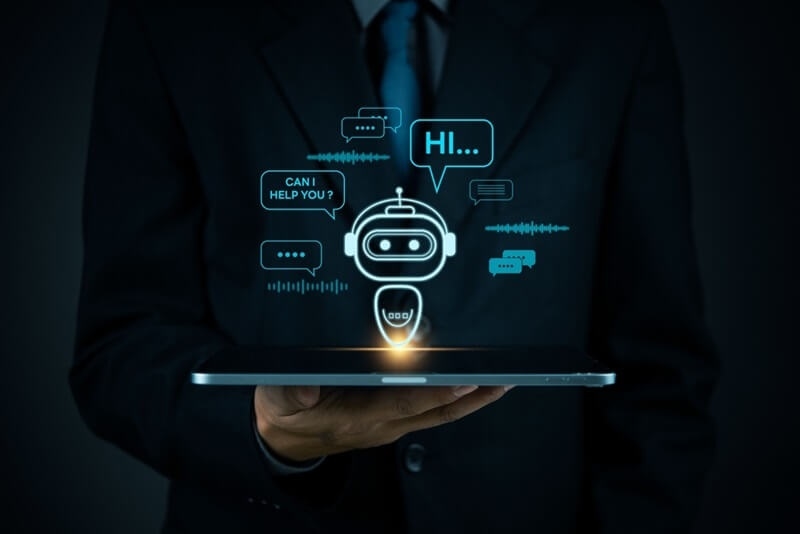
AI feels like it’s everywhere in 2025. It’s in our phones, our cars, the apps we scroll through before bed. But one term keeps showing up in headlines and podcasts: AI agents. And if you’ve found yourself nodding along while secretly wondering, “Wait… what are those, exactly?” — you’re not alone.
The truth is, the idea of AI agents sounds more intimidating than it really is. They’re not robots walking around making choices for us (at least, not yet). They’re essentially pieces of software designed to do one thing: look at information, figure out what matters, and then act on it. Simple in theory, surprisingly powerful in practice.
So let’s break this down in everyday language.
Here’s the straightforward version. An AI agent is a program that takes in what’s happening around it (data), decides what to do (processing), and then actually does something (action). Think of it like a digital decision-maker.
If you’re asking yourself, what is agentic AI, the answer is baked into the word “agentic.” It just means the AI has the ability to act on its own, not just sit there until you tell it exactly what to do. It has a goal and it works toward that goal.
The leap from passive software to something “agentic” is bigger than it sounds. It’s the difference between a calculator that only spits out answers when you punch in numbers, and a system that says, “Hey, based on your habits, I think you’ll need this tomorrow.”

Let’s ditch the techy definitions for a second. Imagine you’re using Google Maps. You type in your destination. The app looks at where you are, checks traffic, and then suggests the best route. Halfway there, an accident happens, and it reroutes you.
That’s an AI agent in action. It’s sensing, processing, and acting — all without you giving step-by-step commands. So when people talk about AI agents explained, don’t overthink it. They’re systems designed to adapt and respond, not just follow rigid instructions.
So, what does an AI agent do day-to-day? A lot more than you’d guess.
In healthcare, agents analyze patient records and suggest treatment options.
In finance, they track stock prices and execute trades faster than a human could blink.
In customer support, they pull answers from databases to help you get solutions instantly.
The common thread? They all take in data, evaluate it, and then act toward a goal. That’s their job description in a nutshell.
Here’s where beginners often get tripped up: there isn’t just one type of AI agent. There are categories, depending on how smart or autonomous they are.
When someone asks about the different types of agents in AI, this is usually what they mean:
Simple reflex agents – They react directly to something happening. Example: a thermostat that turns on the heater when the room gets too cold.
Model-based reflex agents – They build a “mental model” of the world and use it to act. Think of a self-driving car.
Goal-based agents – They’re driven by outcomes, like a chess AI that wants to win the game.
Utility-based agents – They weigh options and pick the one with the most “value” (best payoff).
Learning agents – These are the big leagues. They improve their decisions over time by learning from feedback.
And for the trivia buffs: people often ask, how many types of agents are there in AI? The answer most experts agree on is five.
Must Read: Tech Insights 2025: Emerging Technologies Shaping Future
This is where a lot of confusion happens. People hear “agentic AI” and think of a chatbot. But there’s a clear difference.
With agentic AI vs chatbot, the key word is “autonomy.” A chatbot is built to respond when you talk to it. It doesn’t do much unless you prompt it. An AI agent can go further. It doesn’t just chat — it can actually act. It can book you a ticket, update your calendar, or start a process in the background.
So, while a chatbot is like a helpful clerk waiting at the counter, an AI agent is like a personal assistant who notices what you need and goes off to handle it.
Here’s the funny part: most people don’t realize they interact with AI agents every single day.
Your email’s spam filter? That’s an AI agent.
Netflix recommending a new show because you watched three rom-coms last week? Another AI agent.
Siri setting your reminders or Google Photos curating an album automatically? Yep, agents again.
Once you start spotting them, you realize how deeply they’ve already woven themselves into daily routines.
So why is everyone buzzing about AI agents now? Two reasons: scale and complexity.
In 2025, businesses need tools that can juggle vast amounts of data and still deliver personal, relevant experiences. Agents make that possible. They’re the bridge between raw data and human-friendly outcomes.
And for individuals, it’s about convenience. Whether it’s scheduling, shopping, or managing health apps, AI agents reduce friction. You don’t have to micromanage your tech anymore; it does the grunt work for you.
Like anything shiny and new, AI agents come with upsides and risks.
Upsides:
They save time and effort.
They can scale way beyond what a human team could do.
They adapt, learning from experience to improve over time.
Pitfalls:
They depend on the data they’re trained on. If the data’s biased, the output will be too.
Overreliance is a real risk. Hand too much control over, and you lose awareness of what’s happening.
Privacy concerns are growing. Agents need access to personal data, which opens tricky ethical questions.
Here’s the most likely future: instead of one super-agent doing everything, we’ll see multiple specialized agents working together quietly in the background. One handles your finances, another manages your health, another takes care of your smart home.
The real leap will come when those agents start collaborating smoothly. Imagine your health agent reminding your calendar agent to shift meetings because you’ve got a doctor’s appointment. That’s where we’re going.
Learn More: Vibe Coding Platform: Redefining How Developers Create Code
If you’ve made it this far, you should feel more comfortable answering the “so, what’s an AI agent?” question at a dinner table.
They’re not magic. They’re not science fiction. They’re pieces of software designed to sense, process, and act. From spam filters to self-driving cars, they’re everywhere — and their role is only expanding.
And the big difference between older tech and agents? Agents feel proactive. They don’t just sit there. They help. Sometimes in small, invisible ways. Sometimes in ways that completely change how industries operate.
So the next time your phone suggests something useful before you even think to ask for it, you’ll know: that’s an AI agent quietly doing its job.
This content was created by AI